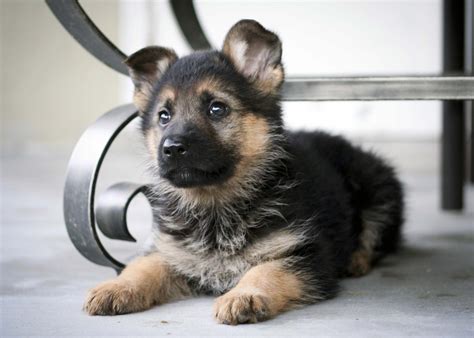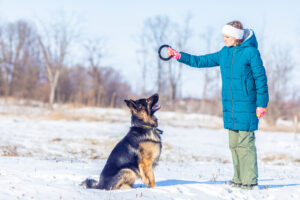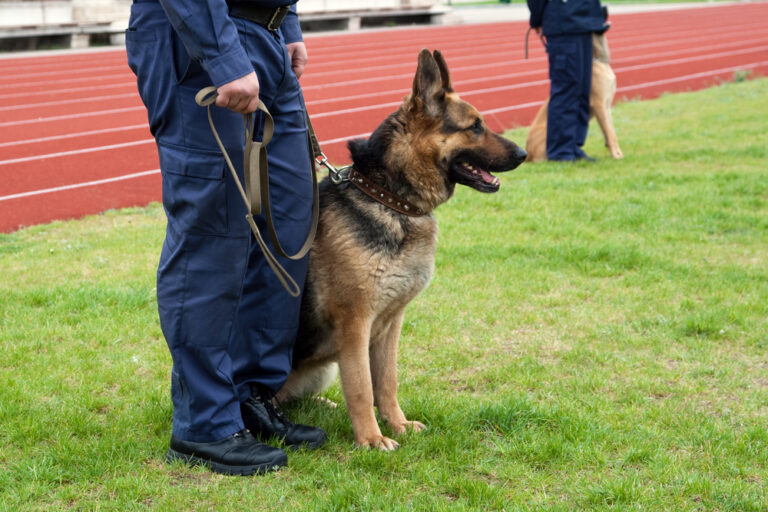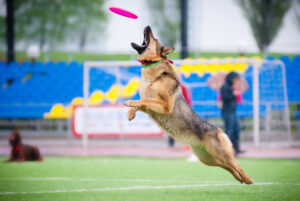German Shepherds are known for their intelligence, loyalty, and versatility, making them one of the most popular dog breeds worldwide. However, raising a well-behaved German Shepherd puppy requires commitment, patience, and consistent training. Starting their education early will ensure they grow into confident, obedient, and happy adult dogs. In this guide, we’ll cover essential training tips for German Shepherd puppies, including socialization, obedience, and behavior management.
Why Early Training is Crucial for German Shepherd Puppies
German Shepherds are a highly intelligent breed. They thrive on structure and mental stimulation, so it’s essential to begin training as soon as you bring your puppy home (typically around 8–10 weeks old). Early training helps:
Prevent unwanted behaviors like barking, chewing, or jumping.
Establish boundaries and routines.
Strengthen the bond between you and your puppy.
Set the foundation for advanced training later in life.
German Shepherds are natural leaders, so consistent training will help you establish yourself as the pack leader and prevent dominance-related behaviors.
1. Start with Socialization
Socialization is one of the most important aspects of training a German Shepherd puppy. Proper socialization helps them develop into well-adjusted, confident dogs.
How to Socialize Your German Shepherd Puppy
Expose them to new environments: Introduce your puppy to different places like parks, busy streets, and pet-friendly stores.
Meet new people: Encourage your puppy to interact with people of all ages, including children.
Introduce other animals: Gradually allow your puppy to meet other dogs and animals to build positive associations.
Expose them to sounds and stimuli: Help them get used to common noises like traffic, vacuum cleaners, and doorbells.
Why Socialization Matters
A well-socialized puppy is less likely to develop fear-based aggression or anxiety. Aim to expose your German Shepherd to as many positive experiences as possible during their critical socialization period (up to 16 weeks of age).
2. Establish a Routine
German Shepherds thrive on consistency. Setting a daily routine will help your puppy understand what is expected of them.
Tips for Establishing a Routine
Create a schedule: Set regular times for feeding, bathroom breaks, play, and training sessions.
Use consistent commands: Stick to the same words for commands like “sit,” “stay,” and “come” to avoid confusion.
Designate sleeping and eating areas: Teach your puppy where they should sleep and eat to create structure.
A predictable routine reduces anxiety and helps your puppy feel secure in their environment.
3. Focus on Basic Obedience Training
Teaching basic commands is essential for building a strong foundation of obedience. Start with simple commands and gradually increase complexity.
Key Commands to Teach
Sit: A fundamental command that helps establish control in various situations.
Stay: Teaches your puppy patience and prevents them from running off.
Come: Ensures your puppy returns to you when called.
Down: Encourages your puppy to lie down, which is helpful for calming them.
Leave it: Prevents your puppy from picking up unwanted items.
Training Techniques
Use positive reinforcement: Reward good behavior with treats, praise, and affection.
Keep sessions short: Puppies have short attention spans, so aim for 5–10 minutes per session.
Be patient: It may take time for your puppy to learn, so remain calm and consistent.
Starting obedience training early sets the groundwork for advanced training in the future.
4. Potty Training Your German Shepherd Puppy
Potty training can be one of the most challenging aspects of raising a puppy, but with consistency, your German Shepherd can learn quickly.
Tips for Successful Potty Training
Stick to a schedule: Take your puppy outside first thing in the morning, after meals, and before bedtime.
Use a designated area: Always take your puppy to the same spot to reinforce the habit.
Watch for signs: Look for behaviors like sniffing, circling, or whining, which indicate they need to go.
Praise and reward: Immediately praise and reward your puppy when they go potty in the right place.
Avoid punishing your puppy for accidents, as this can create fear and confusion. Instead, clean up accidents thoroughly and remain consistent with training.
5. Address Chewing and Biting Behaviors
German Shepherd puppies are teething during the first several months, which often leads to chewing and nipping. While this behavior is normal, it’s essential to redirect it appropriately.
How to Manage Chewing
Provide chew toys: Offer durable chew toys to satisfy their teething needs.
Puppy-proof your home: Keep shoes, cords, and other tempting items out of reach.
Redirect behavior: If your puppy chews on inappropriate items, gently redirect them to a toy.
How to Manage Biting
Teach bite inhibition: If your puppy nips during play, let out a yelp and stop playing to teach them that biting ends fun.
Redirect to toys: Encourage them to chew on toys instead of hands or clothing.
Avoid rough play: Roughhousing can encourage biting, so stick to gentle play.
Consistency is key when teaching your puppy what is and isn’t acceptable to chew or bite.
6. Leash Training for Your German Shepherd Puppy
German Shepherds are energetic dogs that require regular walks and exercise. Teaching them to walk politely on a leash is essential.
Tips for Leash Training
Start indoors: Begin by letting your puppy wear a lightweight leash indoors to get used to it.
Use positive reinforcement: Reward your puppy for walking calmly beside you.
Teach “heel” early: Use treats to guide your puppy to walk at your side.
Be patient with pulling: If your puppy pulls, stop walking and wait for them to calm down before continuing.
A well-behaved walker is safer and more enjoyable for both you and your puppy.
7. Prevent Behavioral Issues Early
German Shepherds are highly intelligent and can develop undesirable behaviors if not properly trained. Common issues include:
Excessive barking: Teach the “quiet” command to manage barking.
Separation anxiety: Gradually get your puppy used to being alone to prevent destructive behaviors.
Jumping: Teach your puppy to sit when greeting people instead of jumping up.
Addressing these behaviors early will prevent them from becoming ingrained habits.
8. Consistency is Key
Consistency is critical when training a German Shepherd puppy. Ensure everyone in your household uses the same commands and rules to avoid confusing your puppy.
Additionally, remember that training is an ongoing process. Even as your puppy matures, regular reinforcement of commands and behaviors is essential for maintaining obedience.
Conclusion: Building a Well-Trained German Shepherd
Training a German Shepherd puppy requires patience, dedication, and consistency, but the rewards are worth the effort. By focusing on early socialization, basic obedience, and addressing behavioral issues, you’ll raise a confident and well-mannered companion.
German Shepherds thrive on structure and mental stimulation, so keep training fun and engaging. With love and guidance, your German Shepherd puppy will grow into the loyal, intelligent, and dependable dog this breed is known for.
For more tips and advice on German Shepherd training, visit The German Shepherd Breed blog regularly!
📘 Continue Exploring German Shepherd Ownership
→ What Is a German Shepherd?
→ German Shepherd Temperament & Personality
→ German Shepherd Training Fundamentals
→ German Shepherd Socialization & Early Development
→ Preparing Your Home for a German Shepherd Puppy




